The conference is a substantive, open and responsible forum where hospital directors - those who directly lead and operate the healthcare system at both central and local levels - frankly share difficulties and obstacles, exchange experiences, and mobilize collective intelligence and resources of the entire industry in the process of digital transformation, improving the quality of governance, ensuring patient safety and sustainable development in a context of many fluctuations. At the same time, propose specific, practical solutions that accurately reflect the needs of the grassroots and are in line with development trends so that the Ministry of Health can absorb and perfect mechanisms and policies in a timely and effective manner.
In his opening speech, Associate Professor, Dr. Dao Xuan Co, Director of Bach Mai Hospital, Chairman of the Hospital Directors Club of Northern Provinces, shared that the healthcare sector is entering a period of development full of potential but also many challenges. In addition to the continuous efforts in medical examination and treatment, hospitals are also deeply aware that science, technology and innovation are the key to improving the quality of medical services, increasingly better meeting the diverse health care needs of the people.
 |
| Associate Professor, Dr. Dao Xuan Co, Director of Bach Mai Hospital. |
In that context, the Government 's Project 06 on digital transformation has opened a new chapter, urging the entire healthcare sector to make breakthroughs in applying information technology, from digitizing the entire medical examination and treatment process, connecting medical data, to applying artificial intelligence and machine learning in diagnosis and treatment.
Associate Professor, Dr. Dao Xuan Co affirmed that Resolution 57-NQ/TW on the development of science, technology and innovation in the healthcare sector further strongly affirms this strategic orientation. The Resolution has created a solid legal corridor, encouraging healthcare facilities and scientists to promote research and apply the most advanced scientific achievements into practice, towards a smart, effective and patient-centered healthcare system.
In addition to sharing the latest research results and effective management experiences, delegates also updated each other on the achievements and advanced trends of world medicine, including: The breakthrough power of Big Data and Artificial Intelligence (AI): AI is revolutionizing medicine from analyzing medical images, supporting the diagnosis of complex diseases, predicting disease risks, to personalizing treatment regimens and optimizing hospital management. The ability to process and analyze huge amounts of data opens up profound insights into human health and disease.
The field of organ transplantation has made remarkable progress, organ transplantation techniques are increasingly perfected, opening up new opportunities for life for thousands of patients with serious diseases of the heart, liver, kidney and other organs; research on preventing transplant rejection and prolonging the life of transplanted organs continues to achieve remarkable achievements.
The field of stem cells is showing great potential, offering hope in the treatment of incurable diseases such as neurodegenerative diseases, cardiovascular diseases, diabetes and tissue damage. Research focusing on the differentiation of stem cells and their application in tissue and organ regeneration is making promising progress.
Meanwhile, the gene therapy revolution opens up the possibility of curing genetic diseases at their root by repairing or replacing faulty genes.
3D printing is finding widespread use in medicine, from creating visual anatomical models for training and surgery, printing personalized medical devices, to the potential for bioprinting tissues and organs in the future.
Robotic surgery offers greater precision, minimal invasiveness, reduced pain, and shorter recovery times for patients. Surgical robotic systems are increasingly being improved with many intelligent features, expanding the scope of intervention in many specialties.
 |
| Professor, Dr. Tran Van Thuan, Chairman of the National Medical Council, Deputy Minister of Health. |
Professor, Dr. Tran Van Thuan, Chairman of the National Medical Council and Deputy Minister of Health, assessed that in recent years, the hospital system nationwide has made many strides in administrative innovation, service quality improvement and technology application. However, reality still shows many shortcomings and problems that need to be seriously recognized and resolved.
That is the situation of overloading in central hospitals still happening, while the capacity of primary and basic hospitals has not been effectively exploited; the technical stratification model has not really promoted the coordination role of the system. Meanwhile, many hospitals face difficulties in human resources, lack of doctors with deep expertise, especially in difficult areas; large disparities between regions, between urban and rural areas, especially in remote, isolated, border and island areas.
Financial mechanisms and implementation of autonomy are still inadequate, some units face many difficulties in financial balance; health insurance payment, technical economic norms and current service price framework are not suitable with the actual costs incurred at hospitals.
Although many institutional problems related to bidding and purchasing of drugs and medical equipment have been gradually resolved in recent times, in reality, in some places there is still a shortage of drugs and medical supplies, directly affecting professional activities and creating great pressure on hospital leadership teams during operations.
Notably, although digital transformation has achieved many initial results, its implementation has not been uniform, there is a lack of connectivity, and there is a lack of specialized IT human resources at facilities; service quality and patient safety are still uneven, and some places have not focused on infection control, process improvement, and assessment of hospital quality and patient satisfaction in a substantive manner.
To gradually overcome difficulties, improve the quality of medical examination and treatment and move towards the goal of sustainable development of the health sector in the new era, Deputy Minister Tran Van Thuan requested the hospital director to thoroughly grasp the 12 directives of the General Secretary to all civil servants, public employees and workers in his unit. This should be considered a guideline in the process of performing tasks.
 |
| Delegates attending the conference. |
Each unit needs to concretize these directives into practical action plans and programs, focusing on innovative thinking in hospital management, and extensively applying digital transformation in management, operations, and expertise. It is necessary to shift from an administrative management model to a modern management model, using data as the foundation, transparency in operations, and efficiency in decision making. Accelerate the implementation of electronic medical records, electronic health records, quality management systems, and interconnection between units, moving towards building a smart hospital model, meeting real-time management requirements and focusing on patients.
In addition to improving professional capacity, hospitals need to focus on improving medical ethics and standardizing professional behavior. Each medical staff must truly understand the principle of “A doctor must be like a kind mother”, considering the safety, health and life of patients as the highest priority; building a humane, friendly and disciplined working environment; making medical ethics a mandatory criterion in training, evaluation, reward and recruitment.
On the other hand, continue to promote the effectiveness of the Project on technology transfer and the Satellite Hospital network. This is a practical solution to improve the professional capacity of grassroots health care, contributing to reducing the burden on central hospitals and ensuring people have access to quality medical services right at the local level. It is necessary to increase professional support, on-site training, apply information technology in remote consultation and treatment, and at the same time replicate the satellite hospital model in a sustainable manner, linked to the practical needs and reception capacity of each facility.
Perfecting institutions and policies to fundamentally resolve existing problems in the health care financial and treatment mechanism, ensuring harmony between financial autonomy and the implementation of the task of taking care of people's health. At the same time, it is necessary to thoroughly overcome long-standing problems in bidding, purchasing drugs, equipment and medical supplies, ensuring publicity, transparency and timely professional services. At the same time, it is necessary to effectively utilize all resources from the state budget, health insurance, public-private partnership and socialization to increase investment in primary health care, ensuring that people in all regions have access to essential, quality and safe health services. Aiming for the goal of every citizen having a regular health check-up every year, gradually moving towards the extremely humane and noble goal of exempting hospital fees for all people according to the policies and orientations of the Party and State leaders.
Source: https://nhandan.vn/nhan-dien-nhung-bat-cap-can-thao-go-giup-benh-vien-phat-trien-ben-vung-post873667.html


![[Photo] General Secretary To Lam visits exhibition of achievements in private economic development](https://vphoto.vietnam.vn/thumb/1200x675/vietnam/resource/IMAGE/2025/5/18/1809dc545f214a86911fe2d2d0fde2e8)

![[Photo] Ready for the top competitions of Vietnamese table tennis](https://vphoto.vietnam.vn/thumb/1200x675/vietnam/resource/IMAGE/2025/5/18/9c547c497c5a4ade8f98c8e7d44f5a41)



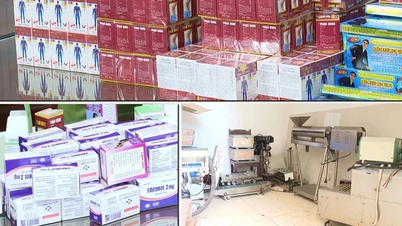

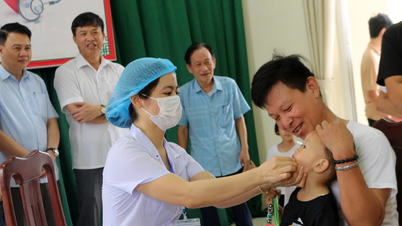

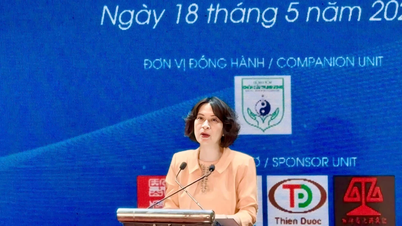
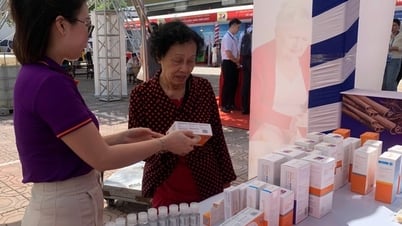

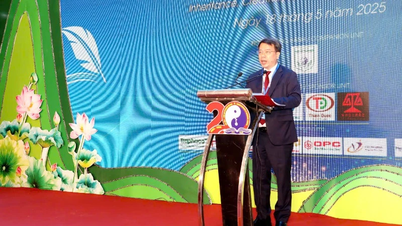






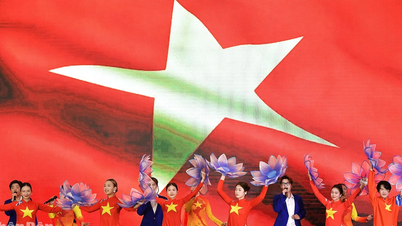

![[Photo] Ready for the top competitions of Vietnamese table tennis](https://vphoto.vietnam.vn/thumb/402x226/vietnam/resource/IMAGE/2025/5/18/9c547c497c5a4ade8f98c8e7d44f5a41)
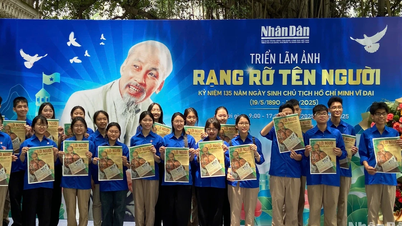
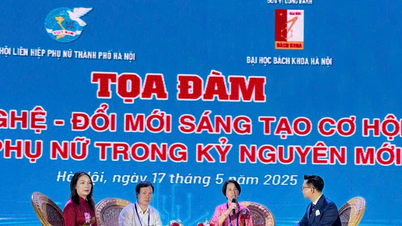
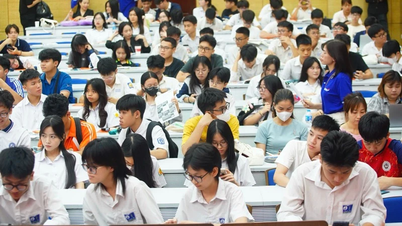
![[Photo] National conference to disseminate and implement Resolution No. 66-NQ/TW and Resolution No. 68-NQ/TW of the Politburo](https://vphoto.vietnam.vn/thumb/1200x675/vietnam/resource/IMAGE/2025/5/18/adf666b9303a4213998b395b05234b6a)













































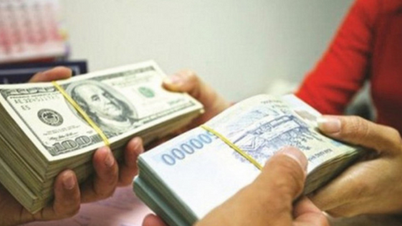

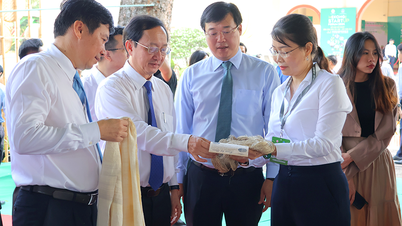
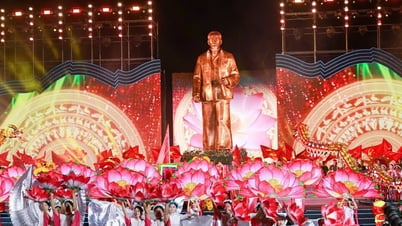












Comment (0)